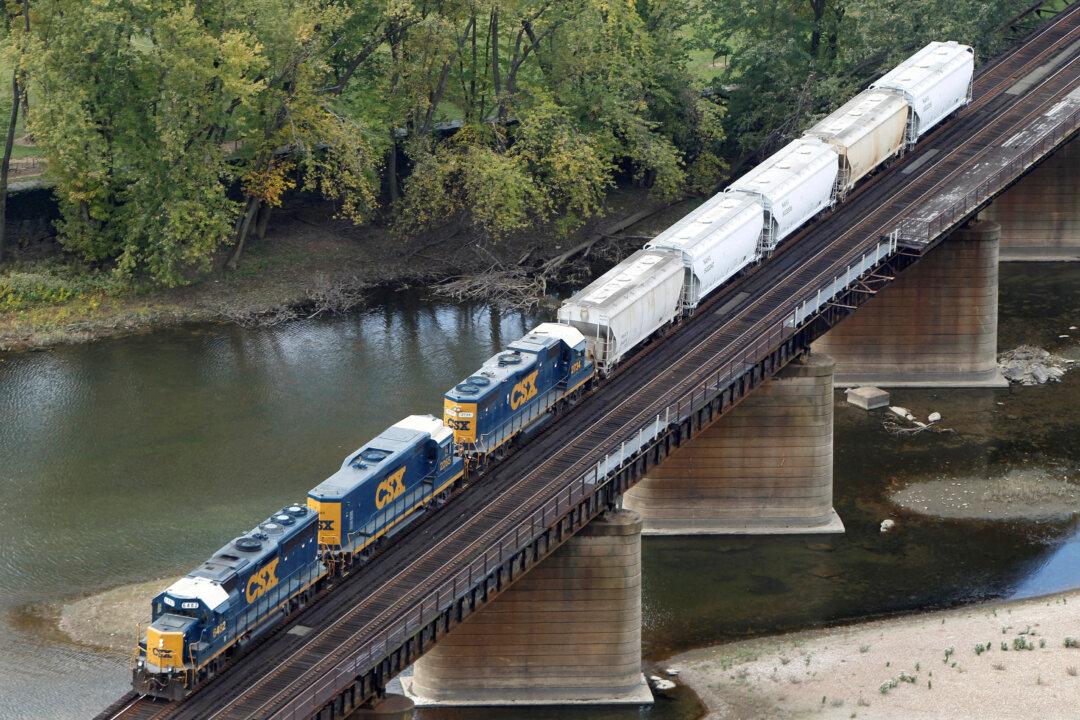LOS ANGELES—Two unions negotiating contracts for almost 60,000 workers at major U.S. freight railways on Sunday said those employers are halting shipments of some cargo to gain leverage ahead of this week’s deadline to secure labor agreements.
Unions and railroads, including Union Pacific, Berkshire Hathaway’s BNSF, CSX, and Norfolk Southern, have until a minute after midnight on Friday to reach tentative deals. Failing to do so opens the door to union strikes, employer lockouts, and congressional intervention.





